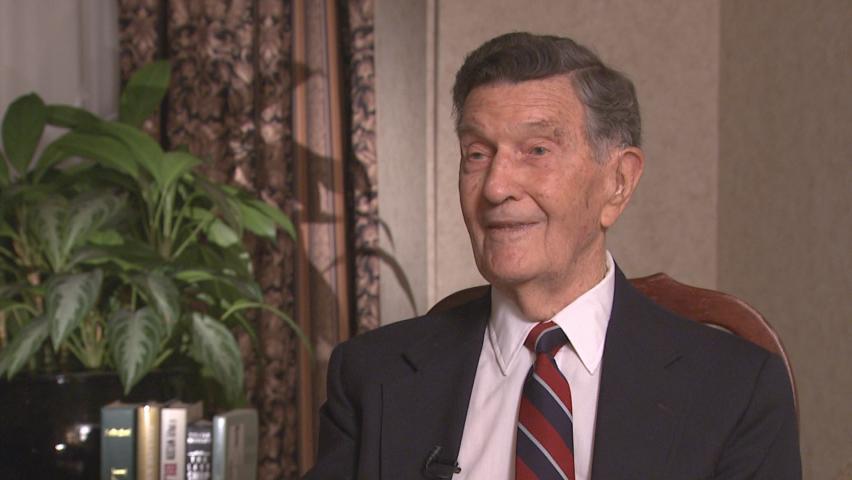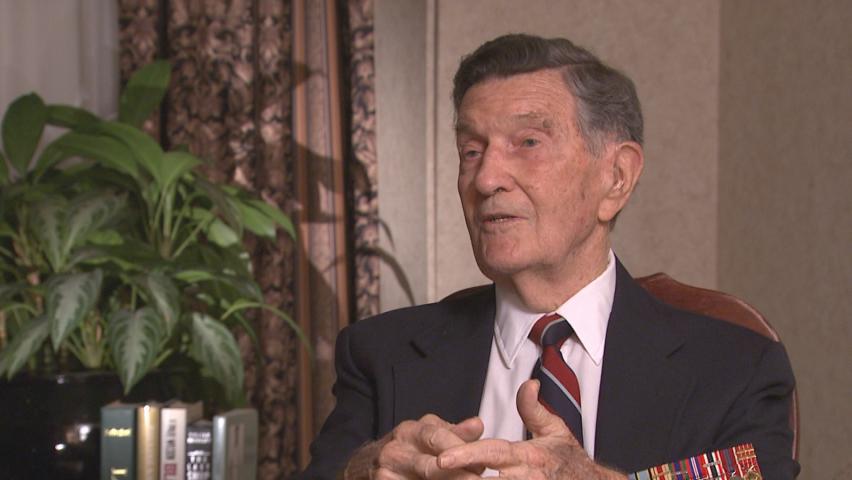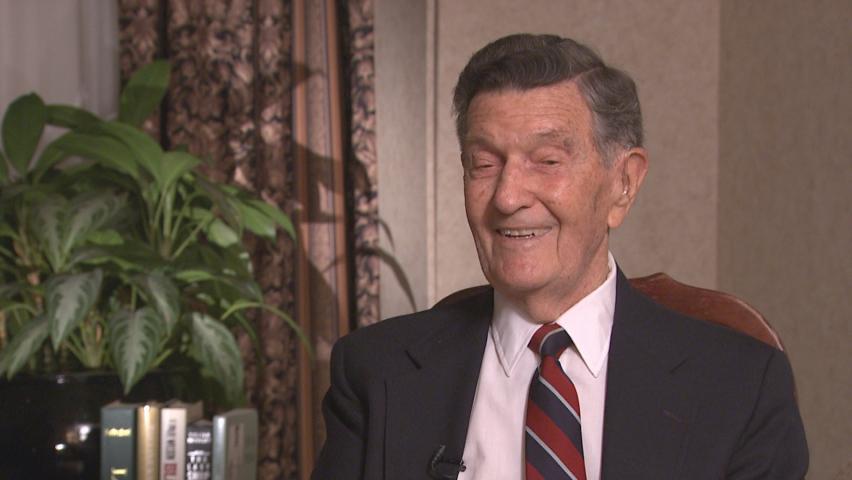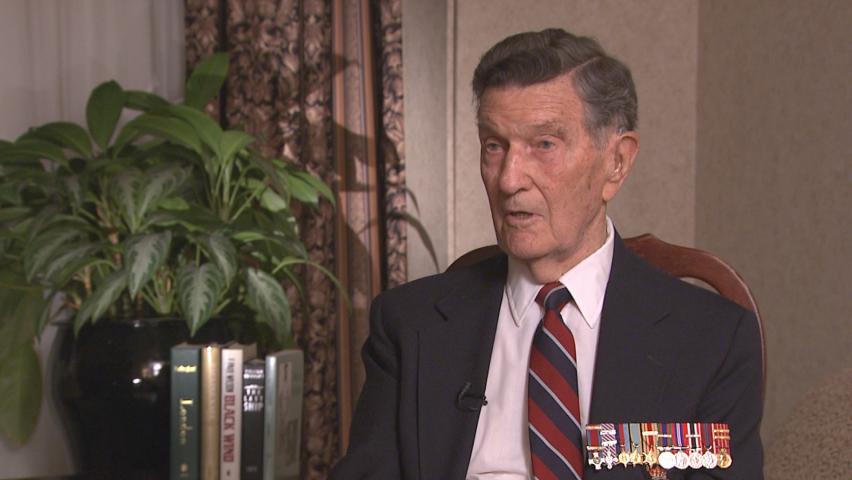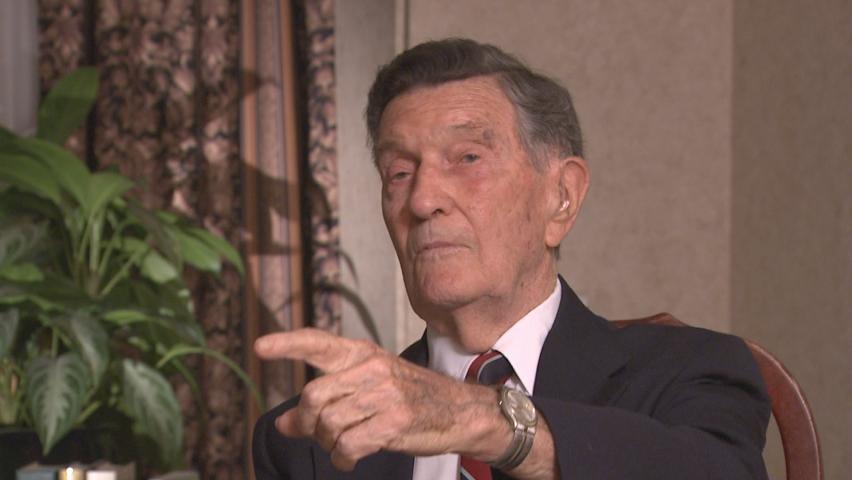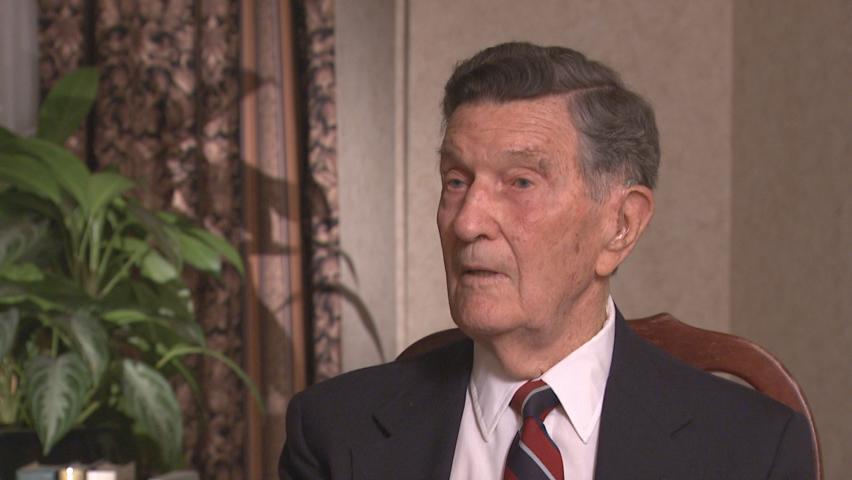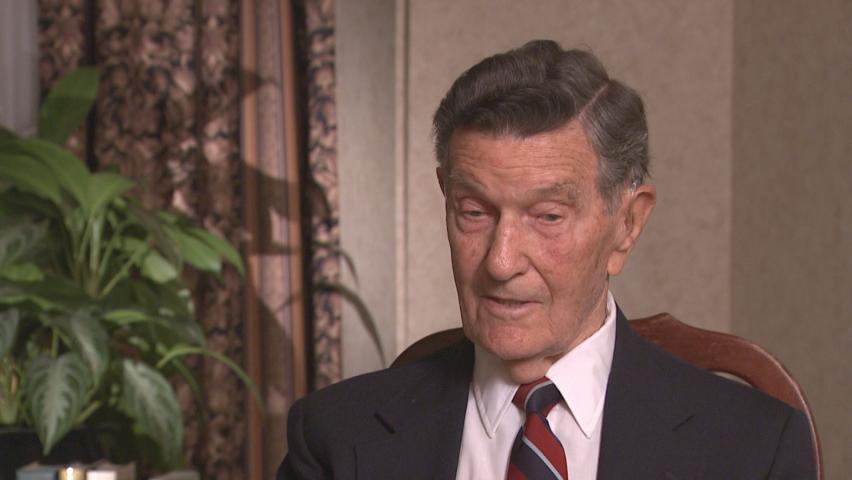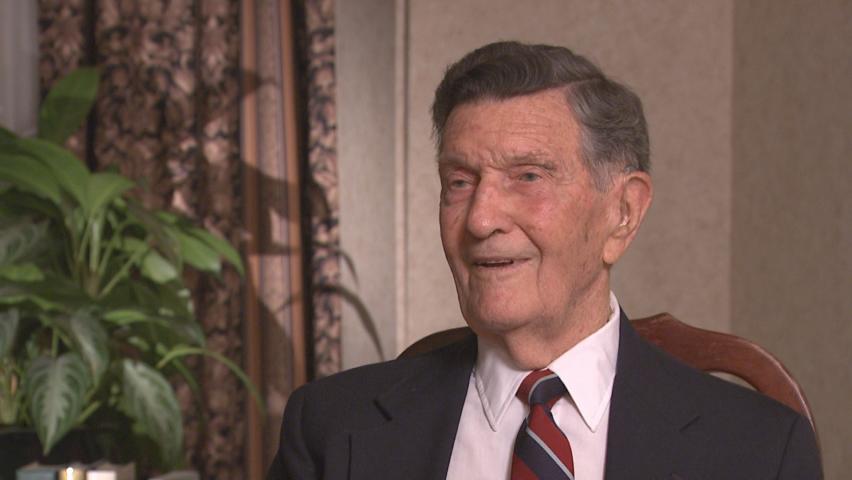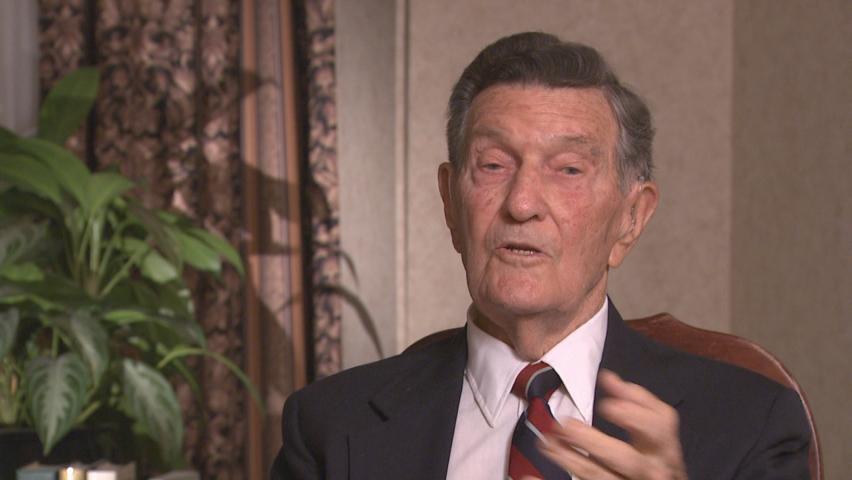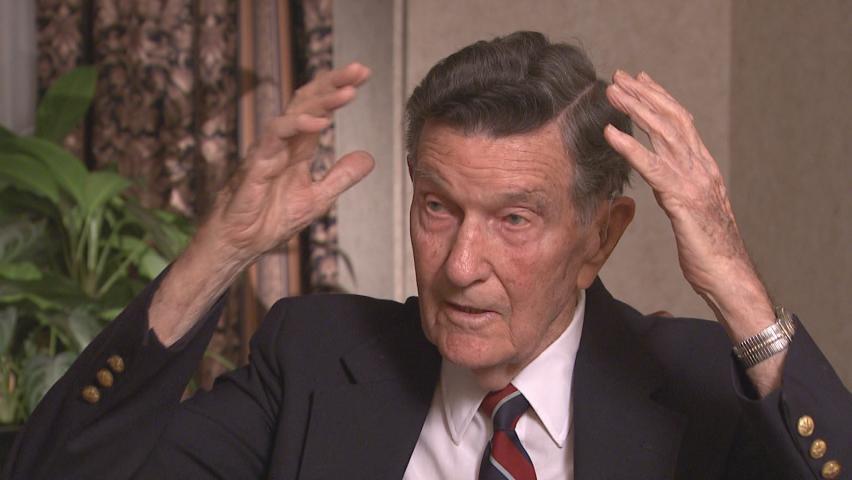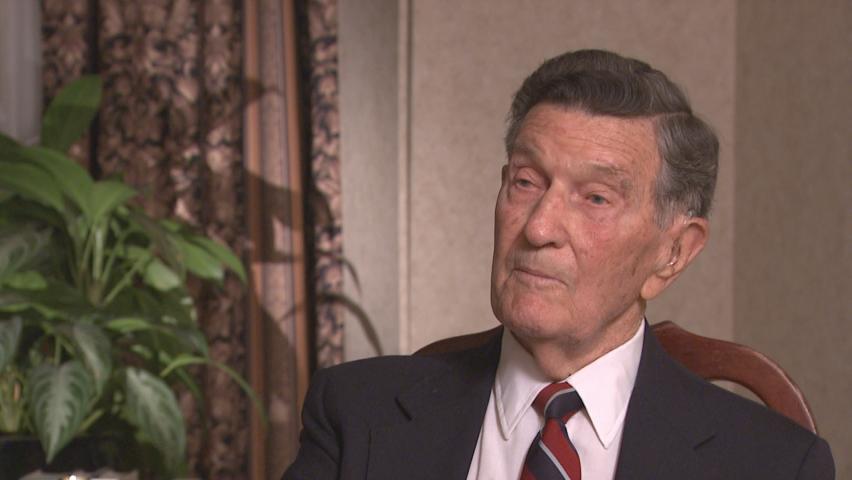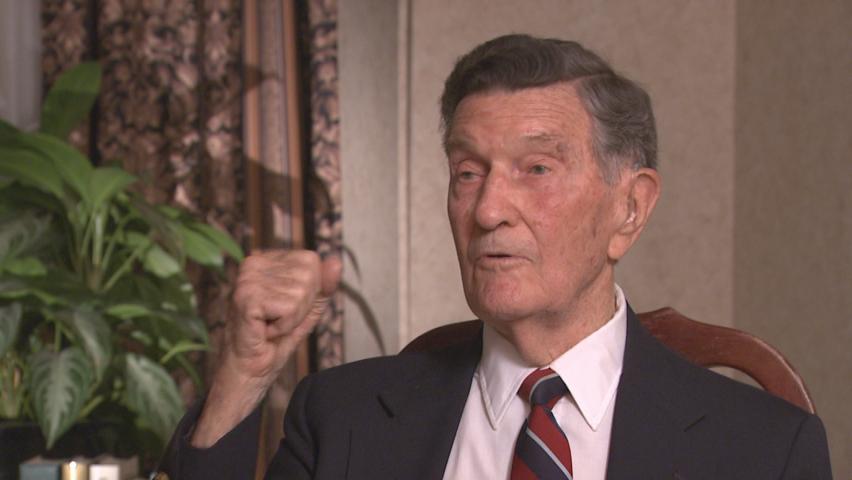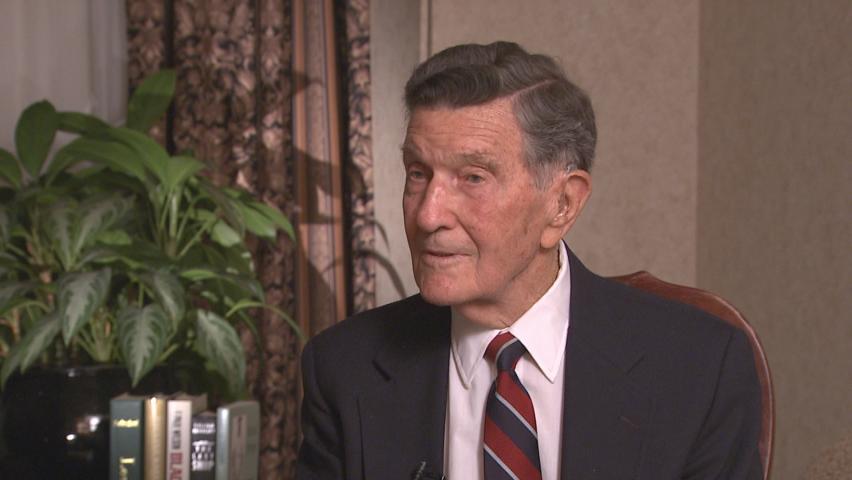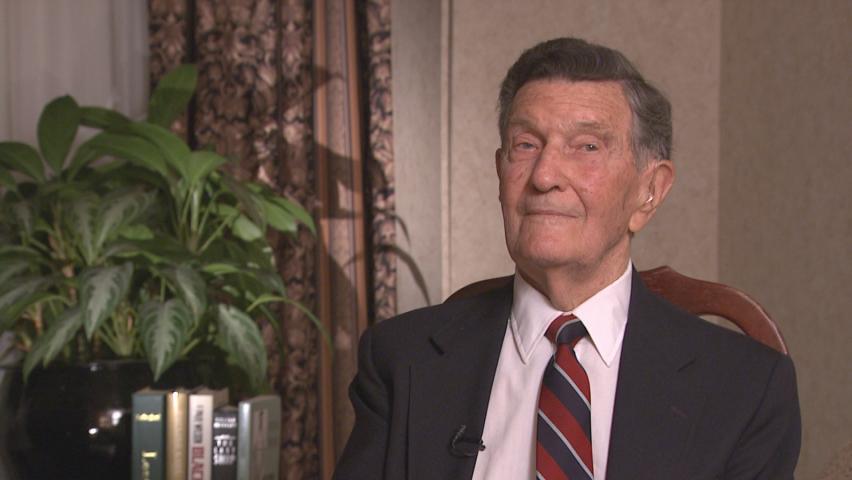When I got up to the surface
it was still night time, it was midnight.
I had to strip, I had already got my shoes and
socks off on the way down but
I had to strip and then I could see a
fire in the distance which was
the Tobruk harbour fires.
So I started swimming towards the
fires and of course I had swam in
the lakes many times but I
very quickly ran out of strength and
stopped swimming and sort of tried to
get myself adjusted and set and then when
I kind of got settled and looked there were no
more fires, it was black all around,
all you could see, of course,
was the horizon and I sort of
thought well what do I do?
And then I thought hell I’m a navigator,
this is another exercise in navigation.
I know I want to go south because the mid and
the coast, I want to go to the coast,
I want to basically swim south.
So I looked up at the sky and I had
done astro navigation before in the flight
so I had found the pole star and
then I lined myself up with the pole star so
my feet were pointing to the pole star and
my head was pointing away from the pole star.
Then I’d roll over and then I would swim.
And I’d swim until I felt that I couldn’t swim
anymore and then I’d roll over again and
I’d line myself up again.
I must have drowned two or three times.
I mean I found myself sinking,
you just stop acting,
you just stop moving and the thing was
the water was salty because
I had swam only in lake water as a boy and
that was offensive and the moment I tasted
the salt water that spurred me on.
I kind of woke up again, fought my way back up
to the surface and then I’d line myself up again and
then I would swim some more.
I think I swam on my back, I swam on my side,
I swam on my stomach, I did everything.
And I swam through jelly fish, you know,
and I watched the phosphorescence in the
water as I stroked my hands through the water.
It was just, you know, an endless sort of thing.
And then I sort of felt I could hear
something and I thought, hmm,
is that the coast? Can I hear the surf?
And I thought, well if it’s surf,
I might not make it,
so I thought, well, but it didn’t make any
difference, I just kept swimming anyway.
And finally I sort of realized that it
had to be the shore somewhere and
then I felt I was on my, basically I was
on my hands and knees at that point.
So I crawled the rest of the way,
got out of the water,
into the sand and there were some
rocks and I sort of flopped down behind
the rocks and I just passed out.
And I didn’t wake up until the sun
got in my face so the shadow of the
rock had cleared me for a while and
then the sun was high enough then
it hit me in the face and I woke up with
the sun in my face and I kind of had to take
a second or two to think where I was,
what was this all about.
And there were flies buzzing around me and
I thought what the hell and
then I remembered this business about my
crotch and, of course,
there was blood around and then the flies
were bothering me and that sort of thing.
But again, your mind takes over and
I wouldn’t even feel what had happened,
I wouldn’t even touch myself to
find out what had happened because
I felt that if I had castrated myself I’d quit,
I’d just pack it up.



